#women’s independence
Text
But independence is not the sole preserve of widows and singles. It can also occur in the home itself, right under a husband's nose. This is indeed the symbolism of the witch's nocturnal flights, which lead her to desert the marital bed, escaping the sleeping man's vigilance, to straddle her broomstick and take off for the sabbath. In the demonologists' tirades, which betray the masculine obsessions of their times, the witch's flight, as Armelle Le Bras-Chopard describes it, represents:
“a freedom to come and go, not only without the husband's permission but generally without his knowledge (unless he is a witch himself) and even to his disadvantage. By picking up a broomstick or chair leg and placing it between her legs, the witch awards herself a simulacrum of the virile member that she lacks. And by artificially stepping outside her sex and giving herself that of a man, she is also stepping outside her female gender: the witch is able to accord herself the ease of movement that, within the standard social order, is the unique privilege of men. [...] Granting herself this autonomy, and thereby escaping the man whose principal freedom is manifest through his dominance over her, the witch spirits a portion of the man's power away from him: her liberation is also a larceny.”
Contrary to what today's "backlash" would have us believe, women's autonomy does not entail a severing of connections, but rather the opportunity to form bonds that do not infringe on our integrity or our freedom of choice, bonds that promote our personal development instead of blocking it—whatever lifestyle we choose, whether solo or in a partnership, with or without children. As Pam Grossman writes, "the Witch is arguably the only female archetype that has power on its own terms. She is not defined by anyone else. Wife, sister, mother, virgin, whore—these archetypes draw meaning based on relationships with others. The Witch, however, is a woman who stands entirely on her own." Whereas the example promulgated over the period of the witch-hunts, imposed first by violence and then, later, with the nineteenth-century invention of the housewife ideal, by a clever mix of flattery, seduction and menace, locks women into their role as reproducers and disenfranchises them from participation in the world of work. Thus, women are positioned in such a way that their own identity is constantly at risk of being muddled with others,' of atrophying, of being swallowed up altogether. They are prevented from living and fashioning their own lives, for the sake of representing an imagined quintessence of femininity. In New York, in 1969, the WITCH group caused havoc at a weddings trade fair by releasing mice into the main hall. One of their slogans railed, "Always a Bride, Never a Person."
-Mona Chollet, In Defense of Witches: The Legacy of the Witch Hunts and Why Women are Still on Trial
22 notes
·
View notes
Text

#black luxury#black girls winning#black girls in luxury#leisure#soft life#soft black women#rich black girls#rich black women#hypergamy#luxury lifestyle#wealthy lifestyle#svdaily#black tumblr#financial security#financial stability#freedom#current mood#law of abundance#law of attraction#independence#throught the month#on a whim#savings
1K notes
·
View notes
Text
as a woman who grew up with an emotionally abusive mother constantly telling me I needed to wear more makeup/more revealing clothing/date (boys) more/go out to "normal" parties more, I despise "she should be at the club"
god forbid some people- especially young women, who already have to deal with a thousand different behavioral standards from a thousand different directions -not have the same dreams and desires for their lives as you do for yours
fucking hell. the correct response to "women should stay at home and have kids and be submissive wives" prescriptivism was not MORE PRESCRIPTIVISM
(I also just saw a poll asking if people partied as teenagers, and OP responded that the answers were "killing them" because No was winning. like? why is everyone so personally invested in other people having a very specific kind of fun?)
#memes#s t o p telling women what to do#being the partying type does not automatically equal being a Free Independent Woman and vice versa#guess what? I'm a 30-year-old lesbian with no kids (yet) and a career and I have NEVER liked clubbing.#I didn't like it when I was 19 or 21 or 25 and I still don't like it now#(I do love my mother; we have a complicated relationship. but the fact is that she did some things fitting the definition of emotional abus
2K notes
·
View notes
Text
It's my core belief that every woman should be entirely independent and be responsible for her own finances regardless of the man in her life. I do not support tradwives or housewives even if it's their own choice to become one. Literally every housewife i know, whether personally or the ones i came across on social media platforms, have one common trait; internalized jealousy. One might tell you she supports independent working women, but once u get to know her you realize she keeps dragging you back toward 18th century patriarchal society. Another might show you the so called luxurious life she's living that her husband provided for her, but that's just her deceiving you to make you believe a man will make your life easy. She's intentionally not showing you the in between parts of her life where she has to be a complete slave to that man just to get some money thrown on her face later. Believe me when i say this, no man is going to provide for you without expecting you to be subservient in return. Every man believes being a provider makes him more valuable, and some even believe that that should be the reason they deserve to have more than one woman. So don't give these incels the power to have authority over you by not being dependent on them. There's a reason why, statistically, independent women are happier than 90% of housewives. Go get your own money!! Be independent!!
832 notes
·
View notes
Text





PROTECT TRANS KIDS 🏳️⚧️
#trans skateboarder#trans skateboarding#sk8#girl skaters#girl skateboards#skater girl#independent trucks#spitfire wheels#skateboarding is for everyone#skateboarding is not a crime#trans#transgender#trans pride#transisbeautiful#transgirl#mtf#girlslikeus#mtf hrt#maletofemale#transformation#trans women#trans woman#protect trans kids#trans support#trans solidarity#support the trans community#trans positivity#trans community#trans is beautiful#lgbtqia
369 notes
·
View notes
Text
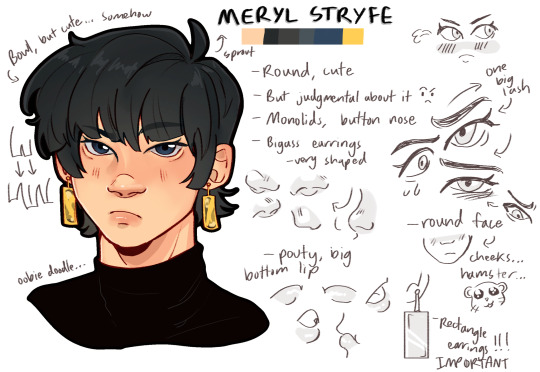


more character references! :)
#charlie’s art#trigun maximum#meryl stryfe#nicholas d wolfwood#chronica trigun#i have. so many feelings about chronica#and independents in general. i like giving them the plant noses#strong bridge + big eyes with heavy lids#kids who look like their aunts#friend pointed out that if somebody with a big brain got around to shipping meryl and chronica their ship name would be chronicyl#you know. like chronicle#the chronicles of chronicyl#it’s hilarious to me. sorry. women should kiss btw#big fan of it#my wife collection. wolfwood included
239 notes
·
View notes
Text






Possibly the cutest photos I've ever seen.
Cate Blanchett and Michelle Yeoh at the Spirit Awards 2023.
#cate blanchett#michelle yeoh#middle aged actresses#film independent spirit awards#wlw#lgbtq#sapphic#beautiful women#women in film#everything everywhere all at once#lydia tár#tar movie
979 notes
·
View notes
Text
you know what. i find it weird as fuck that people always assume none of the women buck dates (specifically taylor but natalia too) will never want to have children with him. i think we need to sit on why we always always use women not wanting to have children with buck as an excuse to get them out of his life. i think we also need to sit on why we use women not wanting to have children as a way to villainize them.
#and like. i don’t want to have biological children BUT to always label women as not wanting to have children#with a man who LOVES kids but actually has never said he wants kids (right now) is odd to me#loads of women want children—even those who are independent and self-sufficient#and loads of women want to adopt too#i just don’t understand why this fandom is so fast to villainize the women in buck’s life by writing them#not wanting to have children#there’s a problem there!#amanda talks
97 notes
·
View notes
Note
for real WHERE does the idea that [utdr humans] are nongendered so that "you can project on them" come from. their literal character arcs are about NOT being a blank slate to be filled in by the audience
i think i understand the assumption on some level for undertale, because there is a very intentional effort to make you identify with the "player character" in order to make your choices feel like your own (the beating heart of undertale's metanarrative lies in giving you an alternative path to violence against its enemies after all, and whether you're still willing to persue it for your own selfish reasons. YOUR agency is crucial).
of course, the cardinal plot twist of the main ending sweeps the rug from under your feet on that in every way, and frisk's individuality becomes, in turn, a tool to further UT's OTHER main theme: completionism as a form of diegetic violence within the story. replaying the game would steal frisk's life and happy ending from them for our own perverse sentimentality, emotionally forcing our hand away from the reset button.
i think their neutrality absolutely aids in that immersion. but also, there's this weird attitude by (mostly) cis fans where it being functional within the story makes it... somehow "editable" and "up to the player" as well? which is gross and shows their ass on how they approach gender neutrality in general lol.
but also like. there's plenty of neutral, non PCharacters in undertale and deltarune. even when undertale was just an earthbound fangame and the player immersion metanarrative was completely absent, toby still described frisk as a "young, androgynous person". sometimes characters are just neutral by design. it's not that hard to understand lol.
anyone who makes this argument for kris deltarune is braindead. nothing else to say about it.
#this is a very difficult topic to discuss imo because on Some level I don't completely disagree with people who make that argument for chara#in SPIRIT. if not in action. like my point still stands characters can just Be neutral. and if that level of customization had been intended#well Pokemon's been doing the ''are you a boy or a girl'' shtick for ages. no reason why that couldn't have been included as well#but i do feel that we're supposed to identify with chara within the story. not as in chara is us but as in we are chara#and i think someone playing the game without outside interferences and (wrongly) coming to the conclusion that chara IS literally#themselves in the story. and thus call them by their own name (the one they likely inputted at the start) and pronouns#will be someone who grasped undertale's metanarrative more than someone who went in already spoiled on the NM route who thinks of chara#(and on some level frisk as well) as completely separate from us with independent wills and personhoods at any time#who treats them as nonbinary. even if their approach is more ''appropriate'' to a gender neutral person#systematic error vs manually changing every measure to fit what you already think is going to be the correct result. ykwim?#of course this opens a whole new parentheses while discussing the game outside of your personal experience#because even if you DO see chara as a self insert then they are a self insert for EVERYONE. women men genderqueer people#i don't call chara ''biscia'' even though that's what i named the fallen human in my playthrough. neither do i use they because i also do#if you're describing the character/story objectively in how they are executed then you're going to talk about them neutrally#because you ain't the only sunovabitch who played the darn game sonny#so like. either way you turn it. even in the most self insert reading you'd STILL logically use they/them so ¯\_(ツ)_/¯ git gud#answered asks
103 notes
·
View notes
Text






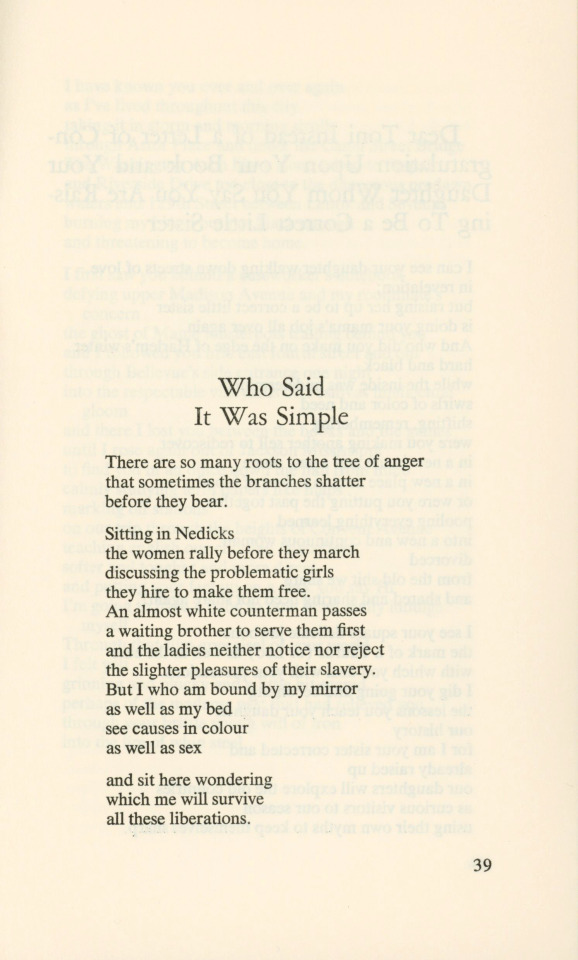



International Women's Day
In celebration of Women’s History Month and International Women’s Day (March 8), we’re showcasing one of writer, educator, intersectional feminist, poet, civil rights activist, and former New York public school librarian Audre Lorde’s (1934–1992) early collections of poetry. From a Land Where Other People Live was published in 1973 by Detroit’s groundbreaking Broadside Press. This independent press was founded in 1965 by poet, University of Detroit librarian, and Detroit’s first poet laureate Dudley Randall (1914-2000) with the mission to publish the leading African American poetry of the time in a well-designed format that was also "accessible to the widest possible audience." A comprehensive catalog of Broadside Press’s impressive roster of artists (including Gwendolyn Brooks, Nikki Giovanni, and Alice Walker, to name a few), titled Broadside Authors and Artists: An Illustrated Biographical Directory, was published in 1974 by educator and fellow University of Detroit librarian Leaonead Pack Drain-Bailey (1906-1983).
Lorde described herself in an interview with Callaloo Literary Journal in 1990 as “a Black, Lesbian, Feminist, warrior, poet, mother doing [her] work”. She dedicated her life to “confronting and addressing injustices of racism, sexism, classism, and homophobia.” From a Land Where Other People Live is a powerfully intimate expression of her personal struggles with identity and her deeply rooted critiques of social injustice. The work was nominated for the National Book Award for poetry in 1974, the same year that Broadside Press published New York Head Shop and Museum, another volume of Lorde’s poetry featured in our collection. You can find more information on her writings and on the organization inspired by her life and work by visiting The Audre Lorde Project.
More posts on Broadside Press publications
More Women’s History Month posts
More International Women’s Day posts
-- Ana, Special Collections Graduate Fieldworker
#Women’s History Month#International Women’s Day#Audre Lorde#Broadside Press#Dudley Randall#Detroit#Poetry#From a Land Where Other People Live#Independent presses#Feminist writers#Lesbian writers#Black writers#women writers#women poets#Ana
98 notes
·
View notes
Text

Female IRA fighter during the height of the troubles.
#aesthetics#aethestic#girls with guns#nationalism#ira#the troubles#irish republicanism#irish republican army#Ireland#northern ireland#Irish women#Irish civil war#english history#english heritage#irish heritage#irish independent
73 notes
·
View notes
Text
Woman’ is not an ambiguous term open to an evolving interpretation.” - the attorneys representing the women who want to keep the sorority house they pay $8,000 for male free.
By Genevieve Gluck December 14, 2023
The female complainants at the center of a lawsuit to have a trans-identified male removed from a sorority at the University of Wyoming have re-filed their appeal, demanding the court clearly define the word “woman.” Artemis Langford, previously known as Dallin, was accepted into Kappa Kappa Gamma (KKG) last September, spurring several women to file a lawsuit to have him removed.
In August, the case of Westenbroek v. Kappa Kappa Gamma Fraternity was dismissed on the basis that re-defining “woman” to include males was “Kappa Kappa Gamma’s bedrock right.” Despite hearing testimony from the women, some of whom stated Langford had “watched” them undress with an erection, Judge Alan Johnson rejected the women’s request to rescind Langford’s admission into the sorority.
However, on December 4, the young women filed an appeal to have the dismissal reversed, arguing that Langford’s presence in the sorority house “caused emotional distress in a personalized and unique way,” and demanding that the court clearly define the word “woman.”
In the appeal, the women reassert that Langford displayed “strange and sexual behavior” towards them, and caused them a level of discomfort and anxiety amounting to personal injury. It reiterates claims that Langford had been filming and photographing the women without their consent and had displayed a visible erection while in the house.
“Specifically, Langford’s unwanted staring, photographing, and videotaping of the Plaintiffs, as well as his asking questions about sex and displaying a visible erection while in the house, invaded Plaintiffs’ privacy and caused emotional distress in a personalized and unique way. And thus Plaintiffs have pleaded a viable direct claim. This Court should therefore reverse the district court’s dismissal of Plaintiffs’ derivative and direct claims,” the appeal reads.
Some of the allegations are a reiteration of previous claims, which Langford’s attorney, Rachel Berkness, has attempted to portray as both false and discriminatory during court proceedings. In June, Berkness filed a motion to dismiss the sorority women’s claims against Langford as “frivolous and malicious,” stating: “The allegations against Ms. Langford … were borne out of a hypothesis in search of evidence and pieced together using drunken party stories. Ms. Langford is not a victim; she is a target.”
The initial suit, filed at the end of March, had asserted that Langford, who is 6’2″, had been voyeuristically peeping on the women while they were in intimate situations, and, on at least one occasion, had a visible erection while doing so.
“One sorority member walked down the hall to take a shower, wearing only a towel … She felt an unsettling presence, turned, and saw [Langford] watching her silently,” the court document reads.
“[Langford] has, while watching members enter the sorority house, had an erection visible through his leggings,” the suit says. “Other times, he has had a pillow in his lap.”

As evidenced by his Tinder profile, Langford is “sexually interested in women.” It was further stated in that Langford took photographs of the women while at a sorority slumber party, where he also is said to have made inappropriate comments.
“At a slumber party, Langford ‘repeatedly questioned the women about what vaginas look like, [and] breast cup size,’ and stared as one Plaintiff changed her clothes,” reads the appeal. “Langford also talked about his virginity and discussed at what age it would be appropriate for someone to have sex… And he stated that he would not leave one of the sorority’s sleepovers until after everyone fell asleep.”
Langford was also said to have taken pictures of female members “without their knowledge or consent.” Some of the women noted that they had “observed Langford writing detailed notes about [the students] and their statements and behavior.”
In May, a judge twice prohibited the women from suing anonymously, while stipulating that Langford’s identity should remain protected. Langford was referred to by the pseudonym “Terry Smith” and male pronouns in the legal documents. Six of the women then refiled the lawsuit under their own names, and are requesting that the court void Langford’s membership in KKG.
“It is really uncomfortable. Some of the girls have been sexually assaulted or sexually harassed. Some girls live in constant fear in our home,” one of the sisters, Hannah, told Megyn Kelly during an interview on her podcast.
Rather than addressing the privacy and safety concerns of the women in KKG, who had each paid $8,000 to live in the sorority house, “Kappa officials recommended that … they should quit Kappa Kappa Gamma entirely.”
In June, the sorority filed a motion to dismiss the suit, calling it a “frivolous” attempt to eject Langford for “their own political purposes.” According to the motion, the women suing were flinging “dehumanizing mud” in order to “bully Ms. Langford on the national stage.” The sorority invited the women to resign their membership “if a position of inclusion is too offensive for their personal values.”
In the motion, lawyers for Kappa Kappa Gamma attempted to depict the suit as an attempt by “a vocal minority” to impose their views on Langford and the rest of the sorority members.
“Perhaps the greatest wrongs in this case are not the ones Plaintiffs and their supporters imagine they have suffered, but the ones that they have inflicted through their conduct since filing the Complaint,” they wrote. “Regardless of personal views on the rights of transgender people, the cruelty that Plaintiffs and their supporters have shown towards Langford and anyone in Kappa who supports Langford is disturbing.”
The recent appeal against the suit’s dismissal, filed on behalf of the young women by Sylvia May Mailman of the Independent Women’s Law Center, the Law Office of John G. Knepper, Schaerr Jaffe LLP, and Cassie Craven of Longhorn Law firm, details several alleged violations of the sorority sisters’ rights, as well as KKG’s own policies.
“The question at the heart of this case is the definition of ‘woman,’ a term that Kappa has used since 1870 to prescribe membership, in Kappa’s governing documents,” the appeal states. “Using any conceivable tool of contractual interpretation, the term refers to biological females. And yet, the district court avoided this inevitable conclusion by applying the wrong law and ignoring the factual assertions in the complaint.”
It goes on to note that from 1870 to 2018, KKG defined “woman” to exclude “transgender women” and that any new definition may not be enacted without a KKG bylaw amendment.
Numerous examples are given of rules put forward by the sorority which use the term “woman,” with the attorneys maintaining that “‘woman’ is not an ambiguous term open to an evolving interpretation.”
KKG leaders who approved Langford’s membership have “subverted Kappa’s mission and governing documents by changing the definition of ‘woman’ without following the required processes.” Kappa President Mary Pat Rooney’s legal team has argued that Langford’s admission into the sorority was based on a 2015 position statement which asserts that KKG “is a single-gender organization comprised of women and individuals who identify as women.”
However, the women’s legal appeal points out that KKG can only change its membership criteria by amending its Bylaws, a process which requires a two-thirds majority approval vote by a Convention of board members. As a Convention to amend Bylaws to reflect the position statement was never held, the appeal states, Langford’s acceptance into KKG is a violation of accepted policies.
KKG leadership is also accused of using “coercive” tactics during the process of voting Langford into the organization in September 2022. After an initial anonymous vote conducted via Google poll failed to result in Langford’s acceptance into the sorority, Chapter leaders developed a second, non-anonymous voting system in which multiple sisters changed their votes because of “fear of reprisal.”
In addition to denying women anonymity, Wyoming chapter officials, after consultation with Kappa’s leadership, had told members that voting against Langford’s admission was evidence of “bigotry” that “is a basis for suspension or expulsion from the Sorority.”
Curiously, prior court documents also reveal that Langford was admitted to KKG despite not even meeting their basic academic eligibility requirements.
While KKG requires applicants to have a 2.7 Grade Point Average (GPA), Langford only had a 1.9 at the time he submitted his membership request, and was not on a grade probation. The legal complaint notes that this indicates Langford’s application was “evaluated using a different standard.”
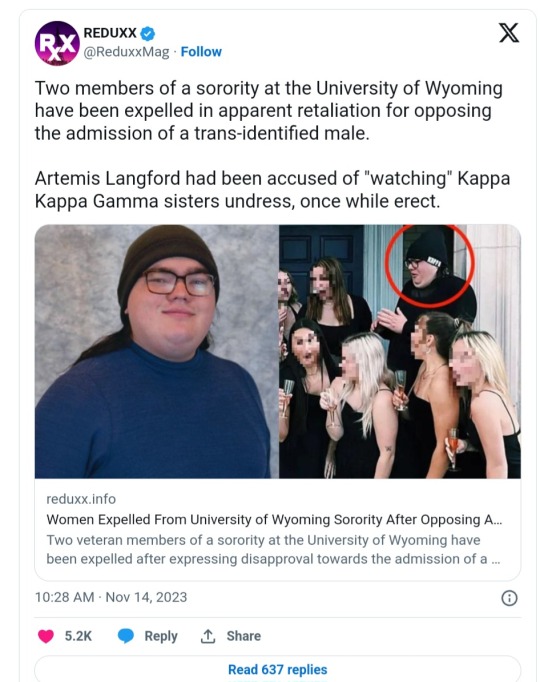
In November, two longstanding alumni members of KKG revealed they had been expelled in an apparent retaliation for advocating that membership be restricted to females only. Patsy Levang and Cheryl Tuck-Smith had been members of the sorority for over 50 years, and had contributed to fundraising efforts for the organization.
Despite their long history of supporting KKG, Levang and Tuck-Smith were voted out by the sorority’s national leadership on November 9. Levang had been the past Kappa Kappa Gamma National Foundation President, while Tuck-Smith was an active contributor and organizer.
The women’s removal came after they had been vocally opposed to the admission of Langford to the KKG chapter at the University of Wyoming, and had supported a lawsuit launched by members of that sorority to have him removed.
Since news of the lawsuit first became widely circulated, Langford has received ample sympathetic coverage in mainstream media, with one MSNBC host labeling him “brave and unique.” In a recent profile by the Washington Post, Langford was given a platform to accuse the sorority sisters involved in the suit of lying while being compared to women who had historically been denied the right to a basic education.
#usa#university of wyoming#What is a woman?#Artemis Langford is Dallin#What is with TIMs choosing the names of goddesses?#Kappa Kappa Gamma (KKG)#The case of Westenbroek v. Kappa Kappa Gamma Fraternity#Get Judge Alan Johnson of the bench#Transbian#The court system was offering to protect the creeps identity but not the women involved#The women each paid $8000 to live in the sororiety house#Independent Women’s Law Center#the Law Office of John G. Knepper#Schaerr Jaffe LLP#and Cassie Craven of Longhorn Law firm#from 1870 to 2018#From 1870 to 2018 KKG defined “woman” to exclude “transgender women”#any new definition may not be enacted without a KKG bylaw amendment#woman is not an ambiguous term open to an evolving interpretation#Convention to amend Bylaws to reflect the position statement was never held#Langford’s acceptance into KKG is a violation of accepted policies.#After an initial anonymous vote conducted via Google poll failed to result in Langford’s acceptance into the sorority#Chapter leaders held a second non-anonymous voting system in which multiple sisters changed their votes because of “fear of reprisal.”#While KKG requires applicants to have a 2.7 Grade Point Average (GPA)#Langford only had a 1.9 at the time he submitted his membership request#and was not on a grade probation. The legal complaint notes that this indicates Langford’s application was “evaluated using a different sta#TIMs claim to be victims but get a lot of perks#Kappa Kappa Gamma (KKG) would rather kick out two women who were active supports of the organization for decades than admit they were wrong
115 notes
·
View notes
Text
youtube
Growing number of women report being punched on NYC
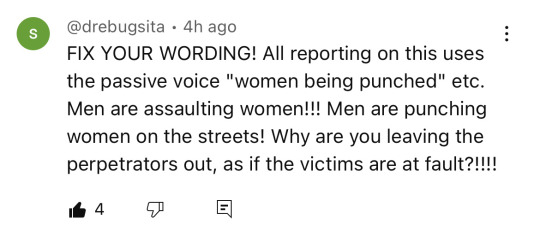
#ic.text#and the comments on there making it seem like it’s a general crime problem#and men blaming women for voting democrat and making it a race issue#or immigrant issue + some incels saying ‘ equal rights equal fights’ and ‘ well how about men being punched ‘#‘ I thought the were independent!!’#Youtube
75 notes
·
View notes
Text
Archeron Sisters = Rulers of Solar Courts
Feyre - Night Court
Nesta - Dusk Court
Elain - Day Court
And I will die on this hill.

#acotar#acosf#nesta archeron#feyre archeron#elain archeron#i will die on this hill#archeron sisters#bad ass independent women#sjmaas#acotar theory
58 notes
·
View notes
Text
Joe Biden will sign legislation protecting access to abortion care into law if Democrats win control of Congress in midterm elections this fall.
In remarks to a Democratic National Committee event on 18 October, the President announced plans to sign a bill to codify Roe v. Wade protections on the 50th anniversary of the US Supreme Court decision – what he intends to be his first act of 2023.
In June, the nation’s high court struck down precedents established by Roe v. Wade and Planned Parenthood v. Casey that affirmed the constitutional right to abortion care.
Following the latest ruling, more than a dozen states have outlawed most abortions or severely restricted access to care, leading to the closures of dozens of clinics. Patients and providers across the US have warned of devastating consequences to losing access to legal abortion, while Democratic officials have made abortion rights central to their midterm campaigns as Republicans mull national abortion restrictions.
“If Republicans get their way with a national ban, it won’t matter where you live in America,” Mr. Biden said on Tuesday. “The only sure way to stop these extremist laws that have put in jeopardy women’s health and rights is for Congress to pass a law.”
Democrats would need to pick up several seats in the currently evenly split US Senate for abortion protections to prevail.
Mr. Biden also said he will veto any anti-abortion legislation passed by a Republican-controlled Congress.
The Democratic-led House of Representatives passed the Women’s Health Protection Act earlier this year, though Senate Republicans have repeatedly obstructed its introduction in that chamber. That bill would codify the right to abortion care as affirmed by Roe v. Wade.
House Democrats were only joined by three Republicans to pass the Ensuring Access to Abortion Act, which would protect the right of abortion patients who live in states that have outlawed or severely restricted care to travel to other states without risking prosecution or legal action in their home states.
The bill also would protect providers and others who help patients travelling out of state for their care.
Legislation would also shield interstate shipments of US Food and Drug Administration-approved drugs used for medication abortion, the most common form of abortion care, accounting for more than half of all abortions in the US.
In a briefing with reporters on Monday, White House press secretary Karine Jean-Pierre called Republican-led abortion restrictions “disturbing” and “very dangerous.”
“It’s backwards, again, it’s dangerous and it’s severe, in stark contrast to the President and the commitment that he has to leave these decisions between a woman and her doctor,” she said.
This fall, voters in several states will determine whether their state constitutions include explicit protections for abortion care, while elections for control of state legislatures, governors’ offices and secretaries of state will also determine the fates of abortion access across the US.
In his remarks on Tuesday, President Biden pointed to Kansas voters shooting down a recent anti-abortion ballot measure in that state, signalling the electoral consequences of the Supreme Court’s decision in midterm elections.
“One of the most extraordinary parts of [the Dobbs decision] was when the majority wrote, ‘women are not without electoral or political power.’ Let me tell you something – the Court and extreme Republicans who have spent decades trying to overturn Roe are about to find out,” he said.
#us politics#news#the independent#2022#president joe biden#biden administration#Democrats#codify roe#roe v. wade#abortions#reproductive rights#reproductive health#abortion is a right#planned parenthood v. casey#Women’s Health Protection Act#Ensuring Access to Abortion Act#food and drug administration#Karine Jean-Pierre#us supreme court#scotus#2022 elections#2022 midterms
893 notes
·
View notes
Text




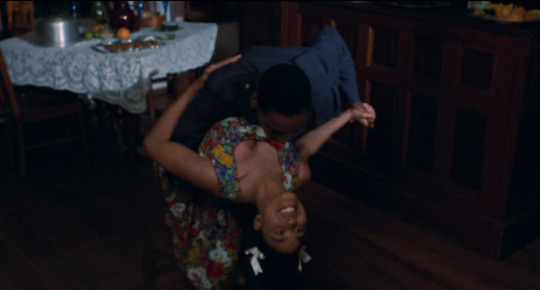

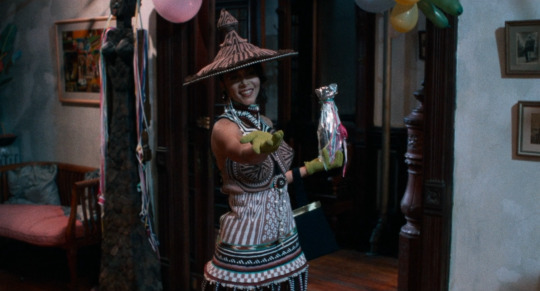

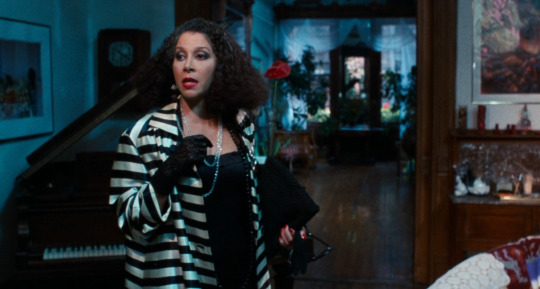

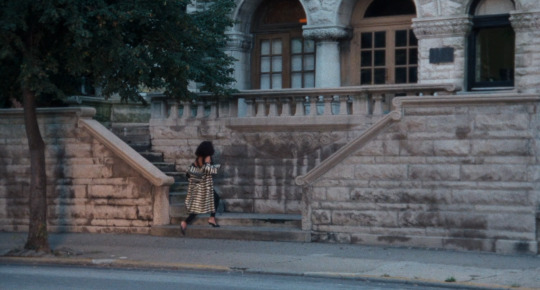
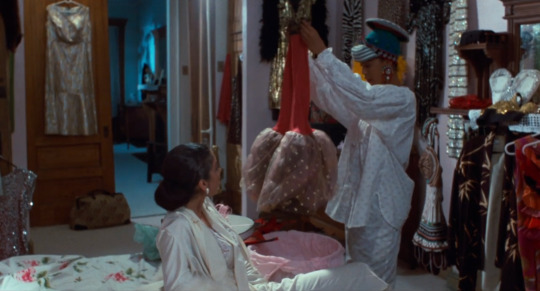

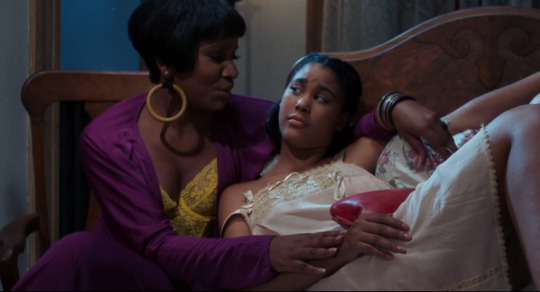


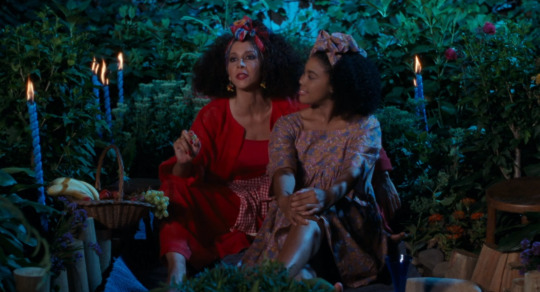

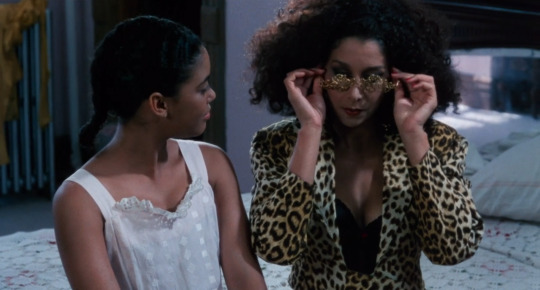
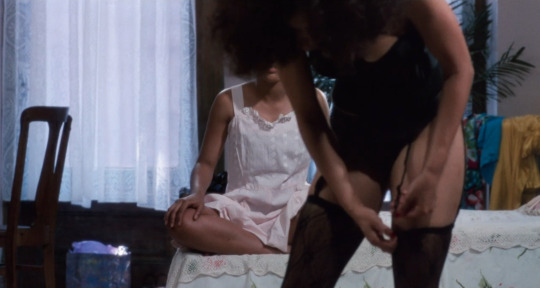

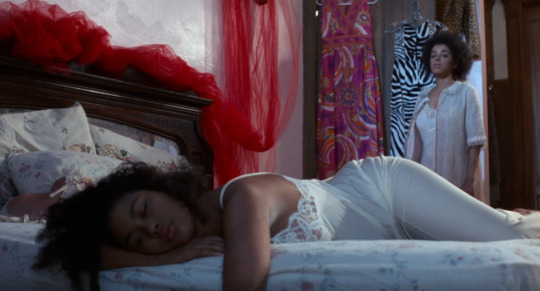
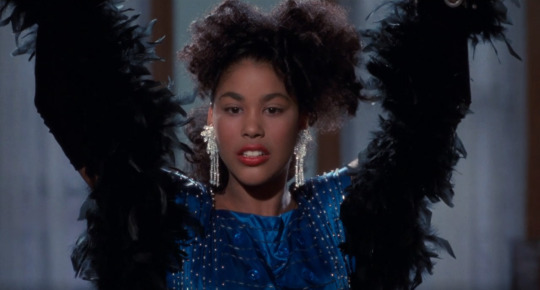


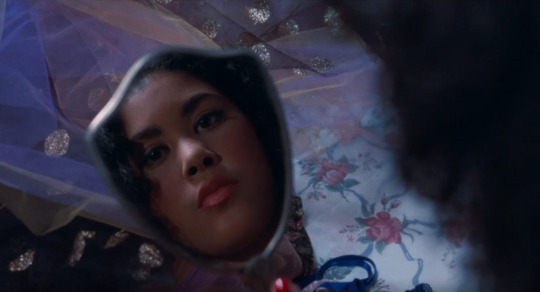
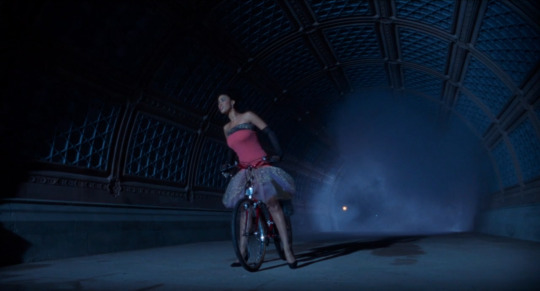

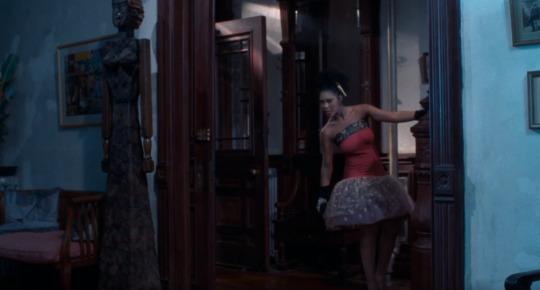
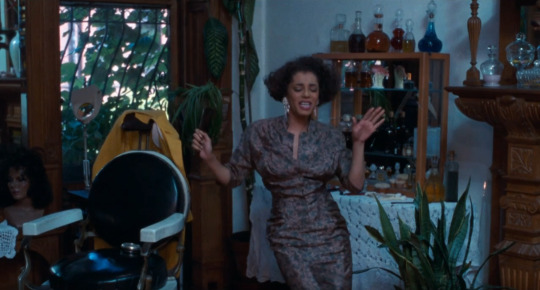
Alma's Rainbow (1994)
Director: Ayoka Chenzira
Cinematographer: Ronald K. Gray
Costume Designer: Sidney Kai Innis
Starring: Kim Weston-Moran, Victoria Gabrielle Platt, and Mizan Kirby.
#alma's rainbow#1994#female directed films#ayoka chenzira#90s films#black cinema#independent film#kim weston-moran#victoria gabrielle platt#mizan kirby#costume design#90s movies#90s aesthetic#cult classic#black films#black women#black history month#black filmmakers#female directors#woman director#black directors#35mm#brooklyn#90s black cinema#criterion channel#restoration
64 notes
·
View notes